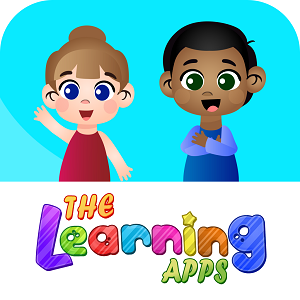5 Ways to Make Homeschooling Safe for Kids
Do you want your children to have a positive, productive homeschooling experience? There are several things you can do to make certain they do. From starting your own program to downloading a virtual private network, there are plenty of major and minor steps you can take to make a home-based education run smoothly and safety.
Earn a Degree and Start Your Own School
Not satisfied with local or online options for your youngsters? Consider applying for a permit to operate a home school of your own, with you as the main, or only, instructor. In most cases, you’ll need a college degree. The major doesn’t matter as long as it’s a bachelor’s diploma from an accredited college or university. If money is tight, don’t worry. You can apply for a private student loan online, and help pay for college before your studies even begin. The advantage of a private educational loan is that you can literally do comparison shopping for rates, terms, and lenders.

Avoid Virtual Green Screens
The rooms in your home, from kitchens to dens to bedrooms include all sorts of private, identifiable background objects like wall hangings, diplomas, family photos, and more. It’s unwise to allow strangers a full view of your personal space. There are apps that can blow up screen shots and see items as small as digits on an exposed credit card lying on a table in plain view. The solution? Spend $10 on a roll-up green screen that you can hoist behind computer chairs. Then, simply decide on what background you prefer and download that view from any of the hundreds of free green screen websites.
Use a VPN
Virtual private networks (VPNs) not long ago were costly affairs and technically tricky to apply to digital education events. Nowadays, you can download free VPNs for temporary and occasional use, and the technical challenges are minimal. What good is a VPN? It prevents others users from accessing your computer’s private, digital address. Like social security numbers, IP addresses are unique to every computer. It’s best not to reveal yours unless you have to. A VPN takes care of the problem simply, and for no cost.
First Names Only
There are some exceptions, but the general rule is to not use last names. Instructors know everyone’s full name but there’s no need for students to have that, or any other personal, sensitive information about classmates. Home-based schools often share video sessions with outside entities for the purpose of taking virtual field trips and the like. So, there are very good reasons for protecting privacy and keeping not just names but email addresses, phone numbers, and physical addresses confidential.
Dox the Instructors
Triple-check the background, education, and other essential information about your child’s teachers. Many of today’s home schools use freelance instructors via live video feed. Remember, your kids will be spending hours of alone time with these adults, so you’d best find out about things like teaching credentials, experience, and references. You’re actually inviting strange adults into your home when you let unknown instructors teach your children, so do your due diligence.
Frequently Asked Questions
1. What are some potential safety concerns that parents should be aware of when homeschooling their children, and how can they address these risks?
When homeschooling, parents should be aware of potential safety concerns such as physical safety, online safety, and socialization. They can address these risks by creating a safe and well-organized learning environment, setting clear boundaries and rules, implementing age-appropriate internet safety measures, and providing opportunities for social interaction and extracurricular activities with other children.
2. How can parents create a safe learning environment for their children at home, and what are some key factors to consider in doing so?
Parents can create a safe learning environment by establishing a designated learning space that is free from hazards and distractions. They should ensure adequate supervision, especially for younger children, and implement safety measures like first aid kits and emergency plans. Additionally, promoting emotional safety by fostering a positive and supportive atmosphere is essential for a child's overall well-being and learning success.
3. Are there any specific tools or technologies that parents can use to enhance safety and security during homeschooling, such as parental controls or secure online learning platforms?
There are various tools and technologies available to enhance safety during homeschooling. Parents can utilize parental controls and internet filtering software to restrict access to inappropriate content. Secure online learning platforms and communication tools can be used to protect privacy and facilitate safe online interactions. It's important for parents to research and choose reputable and secure platforms that align with their safety requirements.
4. How can parents balance the need for safety with the need for independence and exploration in their children's learning experiences?
Balancing safety with independence and exploration is crucial. Parents can provide age-appropriate autonomy by allowing children to make choices within predefined boundaries. Structured activities, clear expectations, and ongoing communication help strike the right balance. Encouraging children to explore their interests and take appropriate risks while providing guidance and supervision ensures a safe and supportive learning environment.
5. What are some best practices for communication and collaboration between parents, children, and other educators or support networks to ensure that homeschooling remains a safe and successful endeavor?
Effective communication and collaboration between parents, children, and other educators or support networks are key to maintaining a safe and successful homeschooling experience. Regular check-ins, open dialogue, and active listening foster a supportive environment. Collaborating with other homeschooling families, joining homeschooling associations or co-ops, and participating in community events allow parents and children to network, share experiences, and access additional resources to enhance safety and success in homeschooling.











